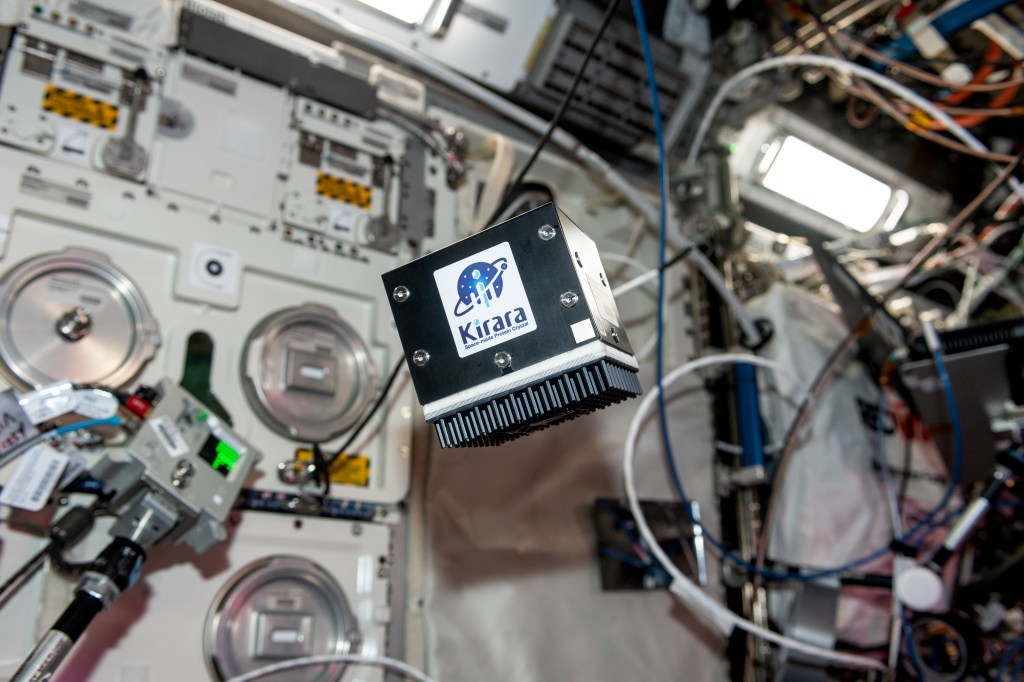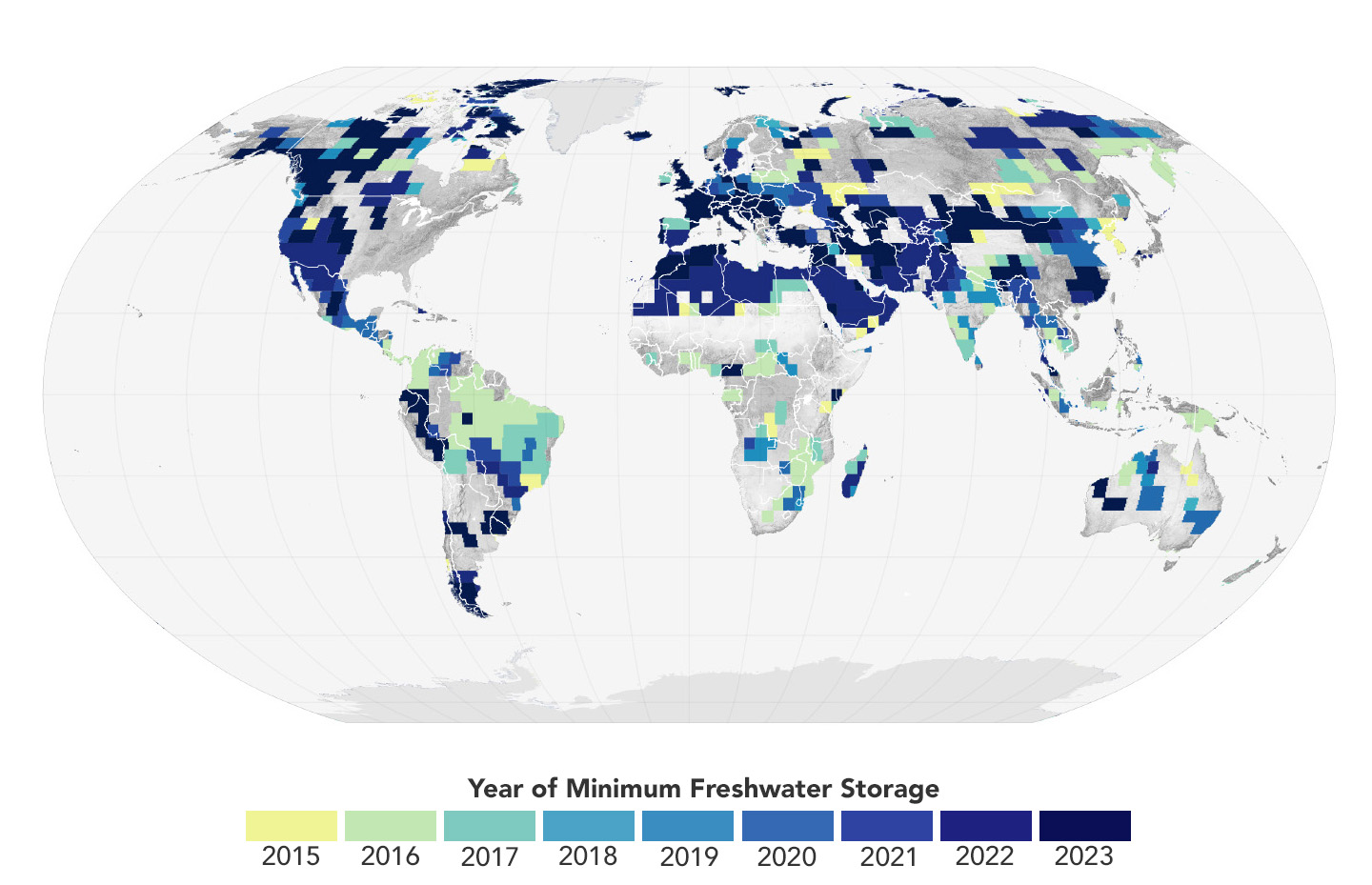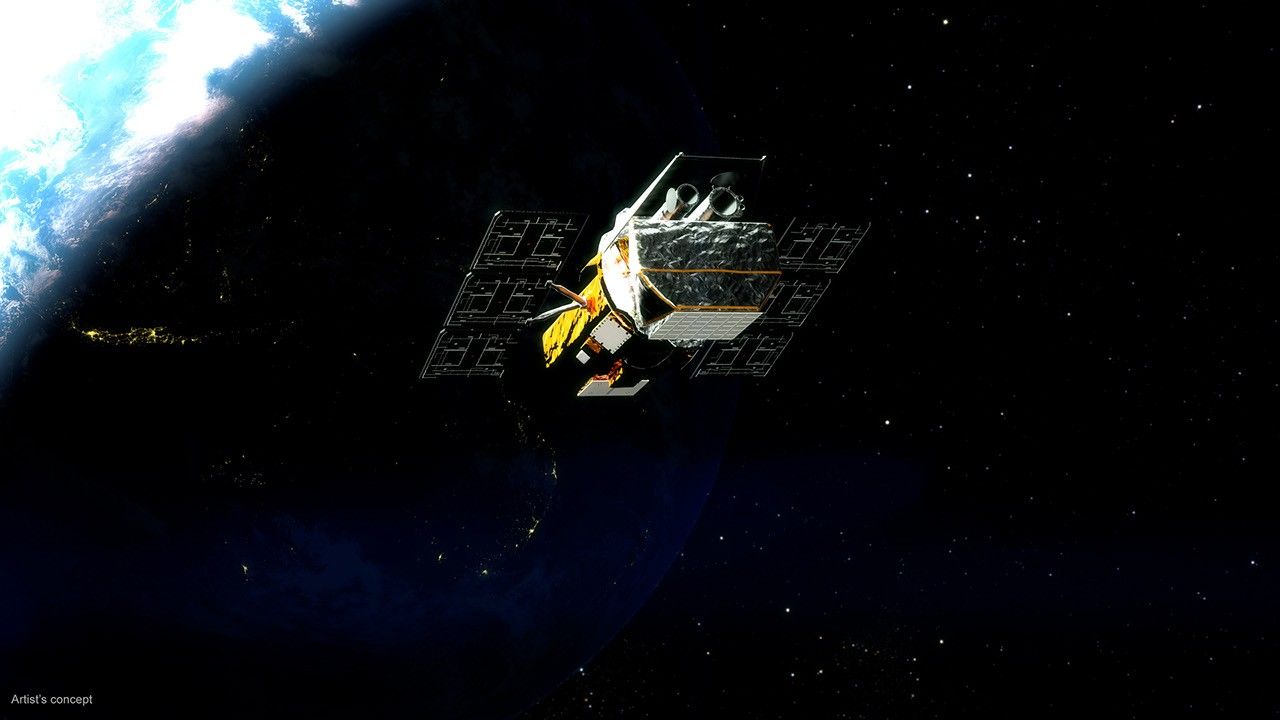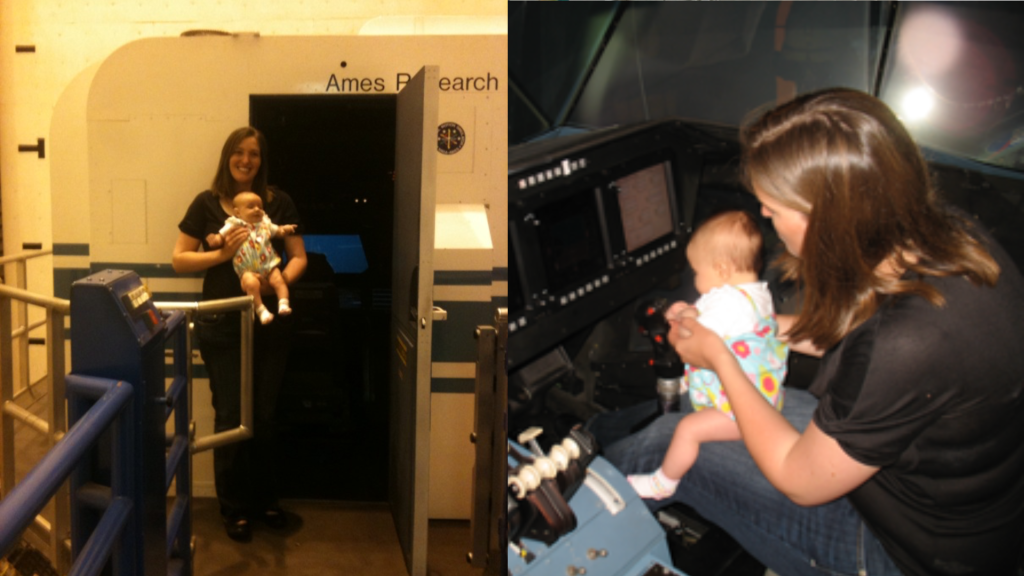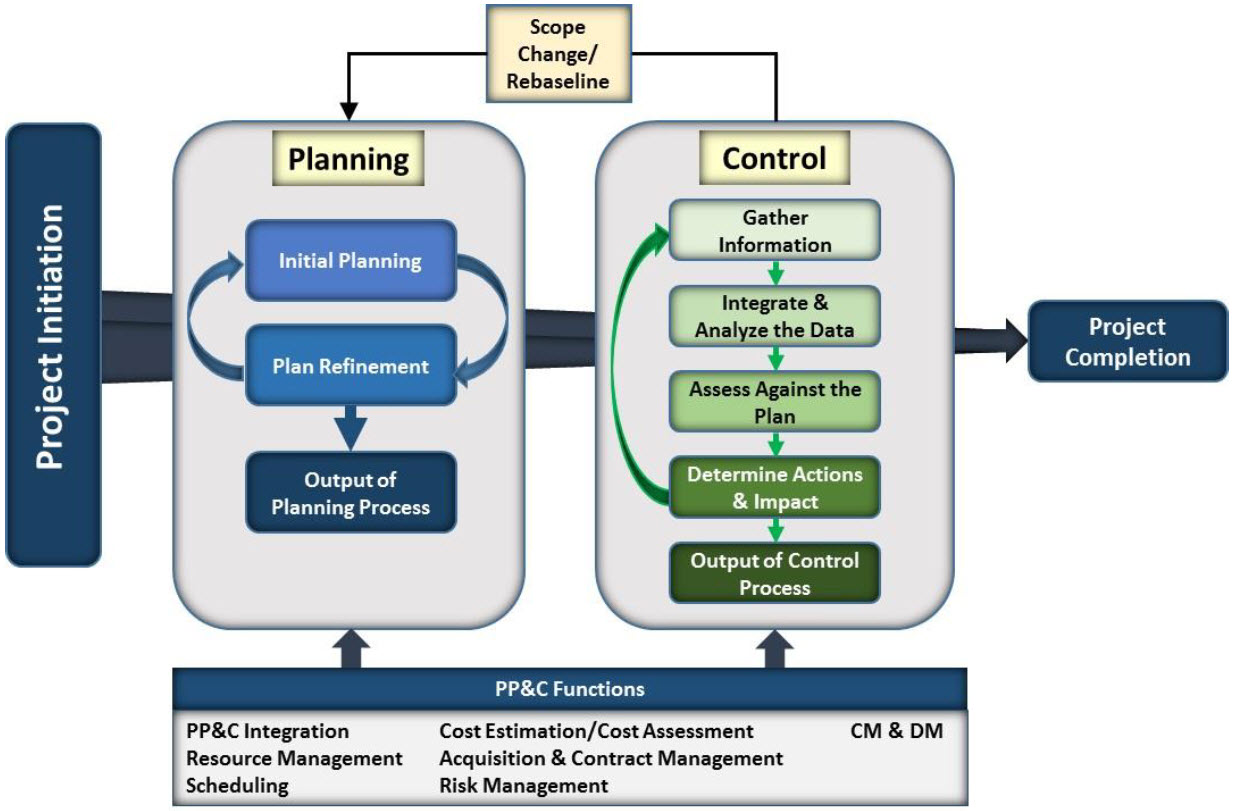Project Planning and Control (PP&C) Overview
Managing the business component of a project is a core capability for mission success. PP&C is a set of inter-related functions that supports developing the plans for executing a project and subsequently assesses and evaluates progress against the plan. The purpose of PP&C is to manage, assess, and improve integrated project cost and schedule performance, considering risk and technical content scope and mission objectives. PP&C works to integrate the expectations of project stakeholders. PP&C is integrally involved during project Formulation when a credible plan is developed that covers three aspects of performance: the technical scope of work (including risk), cost, and schedule. PP&C develops an executable plan in support of the project manager to be reviewed at the end of the Formulation Phase. The executable plan captures the integrated set of technical, cost, schedule, science, resource, and facility requirements of the project in the WBS, schedule, resource baseline, and budget. The Integrated Master Schedule (IMS), Life-Cycle Cost (LCC) estimate, and confidence levels are key elements of the executable plan and also part of the external Agency commitment. If the plan is approved at KDP C to proceed into the Implementation Phase, PP&C provides the framework for executing the plan and meeting its commitments.
PP&C is more than the synergy of disciplines and more than a sum of its parts, which are the individual products of its different disciplines. The value added in PP&C lies in the integration of these individual products, the synthesis, analysis, assessment, and interpretation to support effective project management decisions. PP&C is a multidisciplinary set of interrelated functions where the meaningful integration of data products results in value-added information to the project manager.






